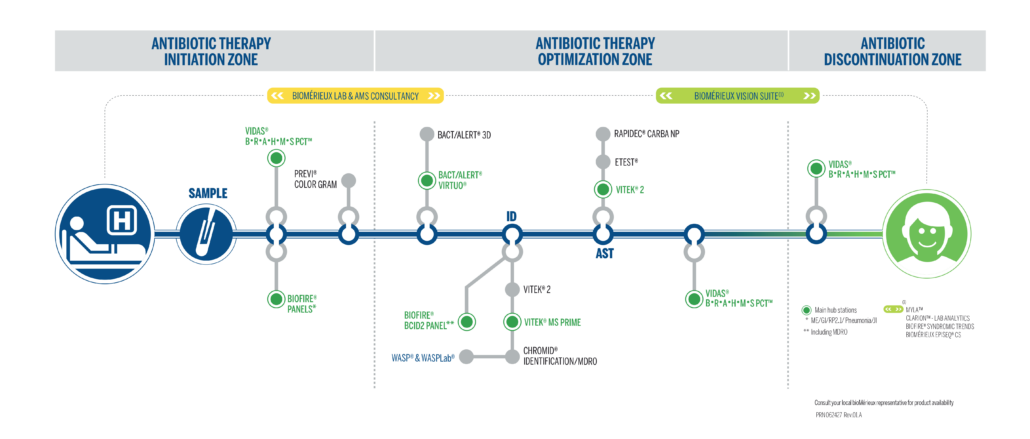Antimicrobial vs. Antibiotic
When talking about antimicrobial resistance, the discourse generally refers to drug-resistant bacteria (i.e., antibiotic resistance). However, it is important to note that the term “antimicrobial” encompasses a wider group of medications that includes antivirals, antifungals, as well as antibiotics. Given that fungi—such as Candida auris—have also become urgent antimicrobial resistance threats, differentiating antimicrobial from antibiotic resistance is becoming increasingly relevant.1
How Does Antimicrobial Resistance Develop and Spread?
Antimicrobial resistance can develop quickly, especially when mutating bacteria and fungi are exposed to antimicrobials that are prescribed excessively or unnecessarily. This can be seen not just in the healthcare space but also in connection to the use of antifungals and antibiotics in agriculture and livestock, respectively.
AMR can also make diagnosing and properly treating deadly infections like sepsis more difficult. Making matters more difficult are those pathogens that are naturally resistant to certain medications without having to undergo any changes. That’s why prescribing the right drug depends on identifying the pathogen that caused the infection.
Antimicrobial resistance also occurs over time by new genetic mutation or by horizontal gene transfer. Genetic mutation occurs when bacterial DNA changes, or mutates, to help the bacteria and fungi survive antimicrobial treatment. When mutated pathogens reproduce and outlive the original bacteria, AMR spreads. Horizontal gene transfer is what happens when pathogens acquire genetic mutations from other pathogens.





